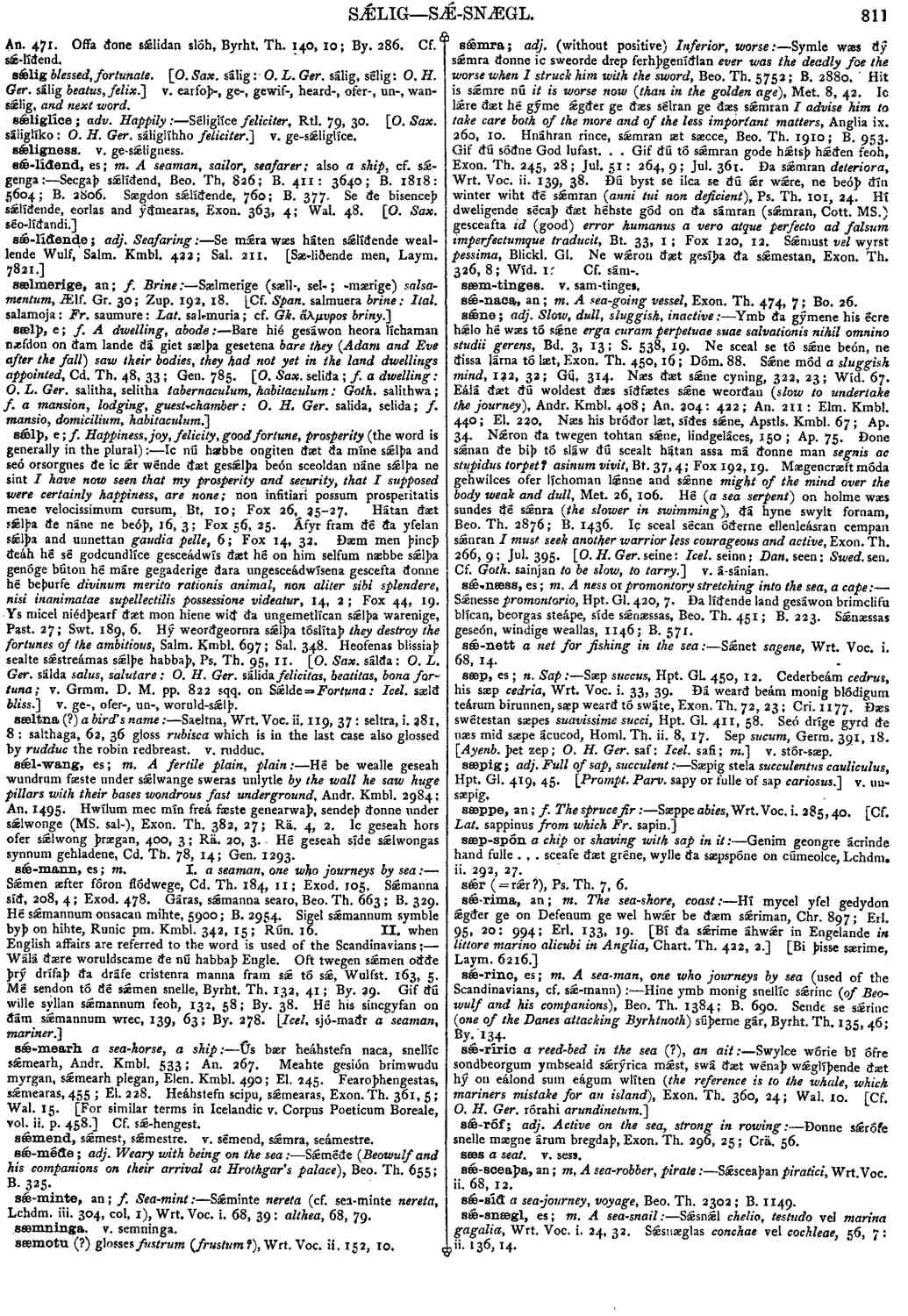sǽne
- adjective
-
Ymb ða gýmene his écre hǽlo hé wæs tó sǽne
erga curam perpetuae suae salvationis nihil omnino studii gerens,
- Bd. 3, 13; S. 538, 19.
-
Ne sceal se tó sǽne beón, ne ðissa lárna tó læt. Exon. Th. 450,
- 16; Dóm. 88.
-
Sǽne mód
a sluggish mind,
- 122, 32; Gú, 314.
-
Næs ðæt sǽne cyning,
- 322, 23; Wíd. 67.
-
Eálá ðæt ðú woldest ðæs síðfætes sǽne weorðan
(slow to undertake the journey),
- Andr. Kmbl. 408; An. 204: 422; An. 211: Elm. Kmbl. 440; El. 220,
-
Nǽron ða twegen tohtan sǽne, lindgeláces,
- 150; Ap. 75.
-
Ðone sǽnan ðe biþ tó sláw ðú scealt hátan assa má ðonne man
segnis ac stupidus torpet? asinum vivit.
- Bt. 37, 4; Fox 192, 19.
-
Mægencræft móda gehwilces ofer líchoman lænnie and sǽnne
might of the mind over the body weak and dull.
- Met. 26, 106.
-
Hé (a sea serpent) on holme wæs sundes ðé sǽnra (
the slower in swimming),
ðá hyne swylt fornam,- Beo. Th. 2876; B. 1436.
-
Ic sceal sécan óðerne ellenleásran cempan sǽnran
I must seek another warrior less courageous and active,
- Exon. Th. 266, 9; Jul. 395.
Bosworth, Joseph. “sǽne.” In An Anglo-Saxon Dictionary Online, edited by Thomas Northcote Toller, Christ Sean, and Ondřej Tichy. Prague: Faculty of Arts, Charles University, 2014. https://bosworthtoller.com/26247.
Checked: 0